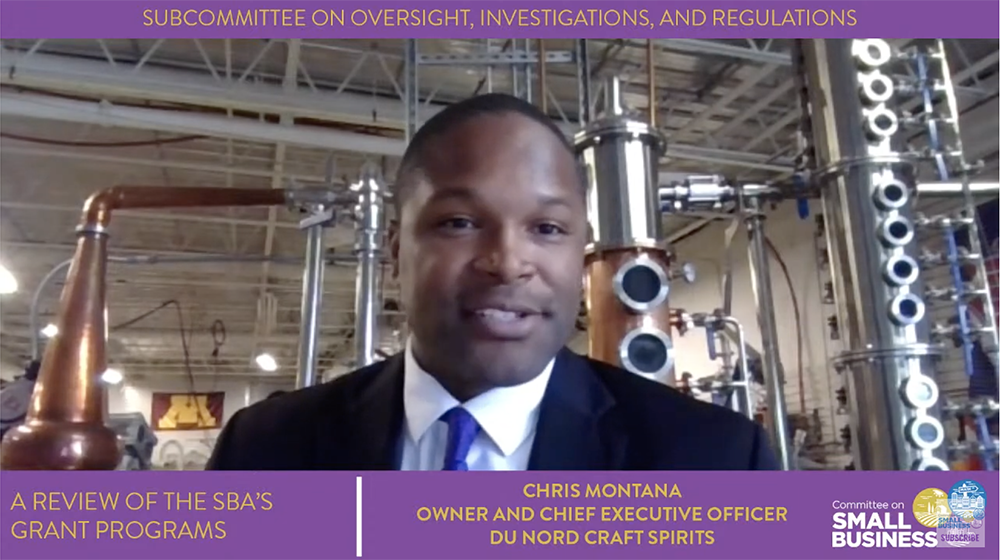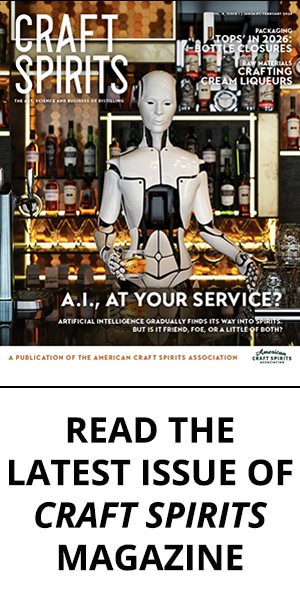
Chris Montana, ACSA’s immediate past president and the founder of Du Nord Craft Spirits in Minneapolis, gave testimony to members of Congress via Zoom last week on behalf of craft spirits producers. Montana was part of a panel of small business owners and advocates who addressed the Committee on Small Business Subcommittee on Oversight, Investigations, and Regulations in a remote hearing.
The hearing gave members an opportunity to hear about the implementation and effectiveness of the Small Business Administration’s pandemic-related grant programs, the Shuttered Venue Operators Grant (SVOG) and the Restaurant Revitalization Fund (RRF). Montana praised the federal government for providing relief through initiatives like the Paycheck Protection Program (PPP).
“On behalf of the microdistilleries across the country, thank you for stepping up for us,” said Montana. “When we stepped up for our communities [to make hand sanitizer] we didn’t do it because we wanted a handshake or a pat on the back or a cookie. We did it because that’s what you do. You use the resources that you have to do what you can to help the people who need helping, and I’m proud to say that that’s what my government did, too. The fact that my business has survived to reach today is traceable directly back to the PPP, EIDL and restaurant revitalization programs, and I know that there are many other micodisitilleries across the nation who would say the same.”
Rep. Dean Phillips (D-MN), the chairman of the subcommittee, noted that the RRF had an initial priority period for grants to women-owned businesses, veteran-owned businesses and socially or economically disadvantaged businesses. He asked Montana to share why he thought the priority period was an important part of the program. Montana mentioned that he had initially failed to secure PPP funding, and was grateful for the priority period for RRF, for which applications closed recently after the fund received more than 300,000 applications for more than $69 billion of relief.
“This place wouldn’t be open but for those funds,” said Montana. “I think that the real challenge here is not so much to focus on the fact that instead of being left out again, this population did get a fair chance at those funds. I think instead the focus should be on how can we make sure that everyone now gets that same access. … I really do hope that this committee and this Congress find a way to fully fund the program.”


